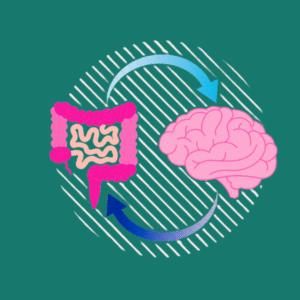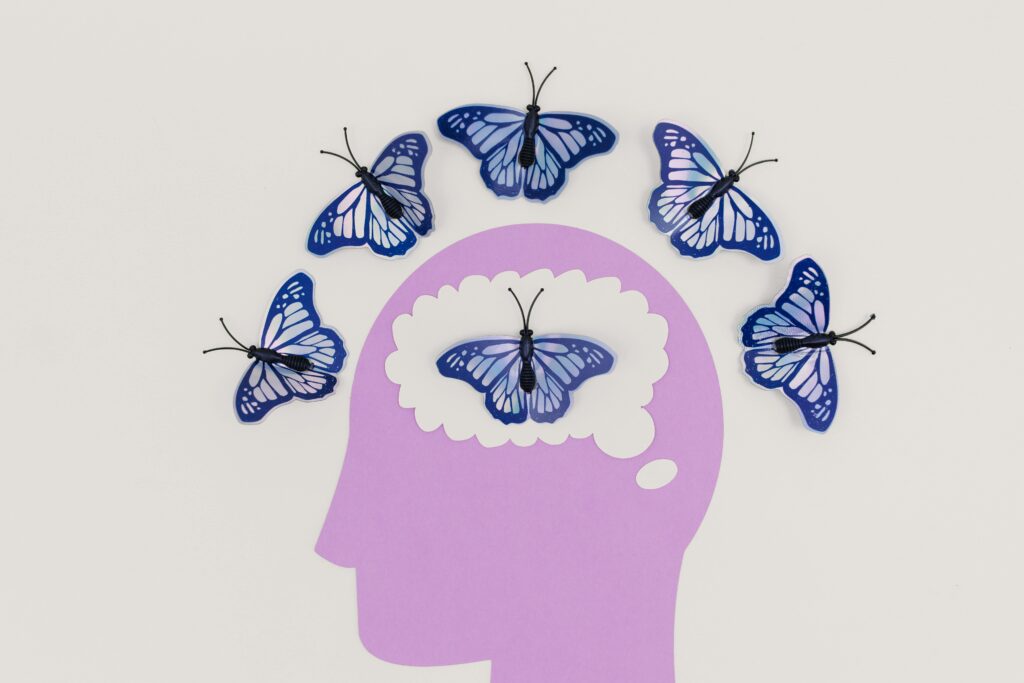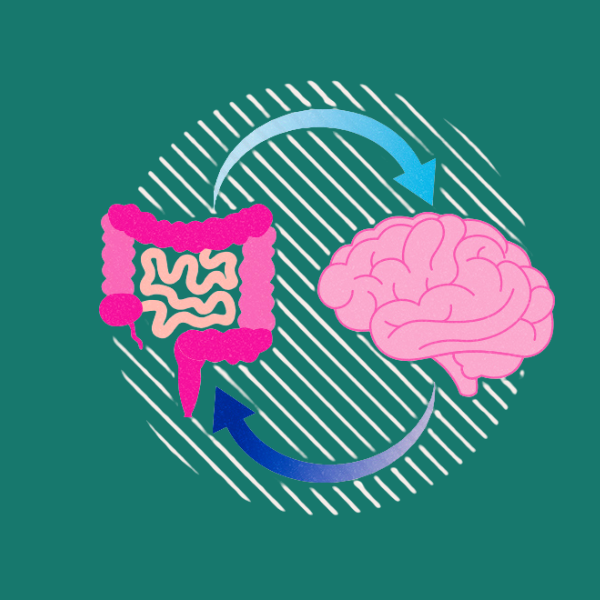Chicago is known for its cultural vibrancy, towering skyline, and dynamic energy. Yet, for families raising children here, the environment presents unique challenges that can impact pediatric gut health and, consequently, emotional well-being. Understanding these urban-specific factors empowers parents to make small changes that create big improvements in their children’s health.
High Stress Environments
Children in urban areas like Chicago often experience elevated stress levels compared to their rural counterparts. Crowded classrooms, dense traffic, safety concerns, and packed schedules all contribute to chronic low-grade stress. Stress activates the body’s sympathetic nervous system (fight-or-flight response), increasing cortisol production. Chronically elevated cortisol disrupts the gut microbiome, leading to inflammation and increased intestinal permeability (“leaky gut syndrome”).
Even activities meant to enrich children’s lives—multiple sports teams, academic tutoring, and busy social lives—can overwhelm a developing nervous system if not balanced with downtime and relaxation.
Dietary Challenges
Fast food is an inescapable reality of urban living. With every block offering pizza joints, burger spots, and processed snack options, it’s easy for families to fall into patterns of convenience eating. Unfortunately, processed foods are often high in sugar, artificial additives, and trans fats—all of which fuel gut dysbiosis (microbial imbalance) and systemic inflammation. Studies show that children consuming a “Western diet” are more prone to anxiety and depression.
Although Chicago is home to fantastic farmers’ markets and fresh produce outlets, these often require planning and effort. Families in suburban areas like Evanston or Oak Park might have better local access, while inner-city families may experience “food deserts,” where nutritious food options are harder to find.
Environmental Pollution
Chicago’s air quality can also play a role in gut health. Exposure to environmental pollutants like fine particulate matter (PM2.5) can impact the gut lining and microbiota composition, increasing the risk for inflammatory disorders, including those affecting mood and behavior.
For example, children living closer to industrial areas or busy highways may experience more gut-brain disruption compared to those in greener suburbs.
Antibiotic Overuse
Access to advanced healthcare in Chicago is a blessing, but it comes with the risk of overprescription. Children frequently given antibiotics for minor ailments can suffer from unintended microbiome destruction. Restoring a healthy gut after multiple antibiotic rounds can take months or even years without targeted probiotic and nutritional support.

Sleep Disruptions
City noise, artificial light pollution, and erratic schedules make achieving quality sleep harder. Yet, proper sleep is essential for gut microbiota regulation and melatonin (sleep hormone) production. Poor sleep further weakens the gut-brain axis, affecting emotional regulation and cognitive function.
In short, while urban living offers tremendous educational and cultural opportunities, it also demands proactive gut-health strategies. Chicago families must balance the fast pace of city life with intentional habits that nurture the body’s inner ecosystem.
Next, let’s dive into the fascinating science behind the gut-brain axis and how this relationship profoundly shapes your child’s future health.
The Science Behind the Gut-Brain Axis in Children

The gut-brain axis is one of the most revolutionary concepts reshaping modern pediatric healthcare. Far from a simple digestive tract, the gut functions as an intelligent sensory organ that talks directly to the brain via multiple pathways—including neural, hormonal, immune, and metabolic signaling.
Understanding this science gives Chicago families the tools they need to support not just their child’s digestion but also their emotional, cognitive, and social development.
The Neural Connection: The Vagus Nerve Superhighway
The vagus nerve is a major player in the gut-brain connection. It runs from the brainstem to the abdomen, sending real-time updates about the state of the gut to the brain. When the gut microbiota is healthy, these signals are calming and regulate emotional balance. When the microbiota is inflamed or unbalanced, distress signals can trigger anxiety, depression, and behavioral outbursts.
Clinical studies show that stimulating the vagus nerve through deep breathing, meditation, and even probiotics can dramatically improve emotional resilience.
The Hormonal Connection: Neurotransmitters Made in the Gut
The gut manufactures important neurotransmitters, including:
- Serotonin (mood, sleep, appetite)
- Dopamine (motivation, pleasure)
- GABA (calmness, anti-anxiety)
In fact, around 90–95% of serotonin is produced in the gut, not the brain.
An unhealthy gut can deplete these neurotransmitters, resulting in anxiety, irritability, poor focus, and depression in children.
The Immune Connection: Inflammation as the Messenger
Nearly 70% of the body’s immune cells reside in the gut lining. When the gut barrier is damaged (a phenomenon called “leaky gut”), toxins and bacteria leak into the bloodstream, triggering widespread inflammation. This systemic inflammation affects the brain, leading to “neuroinflammation”—a root cause of anxiety disorders, ADHD, and autism spectrum symptoms.
The Metabolic Connection: Gut Metabolites Shaping Brain Health
Gut microbes produce short-chain fatty acids (SCFAs) like butyrate that nourish brain cells and strengthen the blood-brain barrier. Without sufficient SCFAs, children become more vulnerable to cognitive challenges and emotional instability.
Early Childhood Matters Most
The gut microbiome is seeded at birth and shaped rapidly in early childhood. Disruptions during this window—via C-section delivery, formula feeding, poor diet, or antibiotics—can set the stage for lifelong gut-brain vulnerabilities. However, early intervention can still restore balance and optimize brain health if families act swiftly.
How Telehealth Mind-Body Psychiatry Supports the Gut-Brain Connection for Illinois Families

Understanding the gut-brain connection offers powerful insight into childhood mental health. While gut health is a complex physical system involving digestion, the mind-body approach focuses on how emotional well-being, stress, and psychiatric conditions can influence — and be influenced by — gut function.
For Chicago families, pediatric psychiatric telehealth provides an accessible way to support the mental and emotional side of the gut-brain connection without needing in-person visits.
Emotional Support for Gut-Brain Health
Many children experience anxiety, mood swings, sleep disturbances, or behavioral issues as part of gut-brain dysregulation. Mind-body psychiatry focuses on:
- Identifying emotional symptoms linked to gut-brain stress
- Teaching self-regulation techniques like mindfulness and breathing
- Managing psychiatric conditions such as anxiety, depression, and ADHD that can exacerbate gut dysfunction
Telehealth services allow Illinois families to address these issues from the comfort of their own homes, reducing the additional stress of traveling to clinics.
Psychiatric Care That Acknowledges Whole-Body Health
Our mind-body telehealth model recognizes that mental health is never isolated from physical health. While we do not diagnose or treat specific gastrointestinal disorders, our psychiatric evaluations consider how symptoms like chronic stomachaches, appetite changes, and sleep problems might interact with emotional wellness.
Where needed, we collaborate with pediatricians, gastroenterologists, or nutritionists to ensure comprehensive care — but our core focus remains supporting the psychological and emotional resilience that fosters a healthier gut-brain connection.
Telehealth Benefits for Chicago and Illinois Families
Families across Chicago neighborhoods and suburbs — from Hyde Park to Hinsdale — can access expert psychiatric care focused on:
- Managing anxiety and stress that impact gut health
- Supporting children with mood disorders linked to the gut-brain axis
- Teaching coping skills to handle emotional triggers that affect digestion
- Offering guidance on lifestyle adjustments like sleep, movement, and stress management
Through secure video sessions, we partner with parents to create mind-body care plans that nurture emotional strength, cognitive development, and physical resilience.
Common Pediatric Gut Issues That Influence Mental Health

When discussing the gut-brain connection, it’s important to recognize that while gut disorders are medical conditions requiring pediatric or gastroenterology expertise, their emotional impact often overlaps with psychiatric symptoms. For families across Chicago and Illinois, telehealth mind-body psychiatry can help children manage the mental and emotional challenges that often accompany gut-related conditions.
Let’s explore some common pediatric gut issues and their potential psychological impact:
Irritable Bowel Syndrome (IBS)
IBS is one of the most common digestive disorders affecting children. Symptoms include stomach pain, bloating, constipation, diarrhea, and nausea. While IBS itself is a medical diagnosis handled by gastroenterologists, children living with it often experience:
- Heightened anxiety before school or social events
- Avoidance behaviors due to fear of symptoms
- Sleep disturbances tied to digestive discomfort
Through telehealth psychiatry, we can help children develop coping strategies to manage the stress and anxiety that often worsen IBS symptoms.
Food Sensitivities and Intolerances
Gluten, dairy, soy, and other food sensitivities can cause inflammation and discomfort, impacting a child’s mood and behavior. Emotional symptoms linked to unidentified food sensitivities may include:
- Increased irritability
- Mood swings
- Fatigue and low energy
- Difficulty concentrating
While diagnosis and dietary management are outside the psychiatric scope, mind-body strategies like mindfulness, stress reduction, and emotional self-awareness can greatly improve coping and resilience.
Chronic Constipation
Constipation isn’t just uncomfortable — it can have a significant emotional toll on children. Many children with chronic constipation feel:
- Embarrassment and shame
- Fear of going to the bathroom in public places
- Social anxiety
Left unaddressed, these emotional burdens can spiral into persistent anxiety or depressive symptoms. Our telehealth services can provide emotional support to children dealing with these challenges.
Abdominal Pain with No Clear Cause
Some children experience “functional abdominal pain” where no structural cause is found, but pain and discomfort are very real. In many cases, emotional stress exacerbates physical pain through gut-brain signaling pathways.
Through telepsychiatry, we help children:
- Recognize the role stress plays in physical symptoms
- Develop body awareness skills
- Learn healthy coping techniques like breathing exercises and guided imagery
In summary, while we do not diagnose or treat digestive diseases, mind-body pediatric psychiatry plays a critical complementary role in helping children navigate the emotional side of gut-related struggles. Families in Chicago and throughout Illinois can access this support conveniently through telehealth.
Best Foods for a Healthy Gut-Brain Connection

Nutrition is a major driver of gut-brain health, and while dietary advice should always come from qualified pediatricians or nutritionists, mental health providers play an important role in educating families about the emotional benefits of healthy eating.
Parents often ask, “Are there foods that help kids’ moods and emotional stability?”
The answer is yes — and encouraging mindful eating habits can profoundly support a child’s emotional regulation.
Here’s a quick overview of foods associated with better gut and brain health:
| Gut-Brain Healthy Food | Why It Matters |
|---|---|
| Yogurt with live cultures | Adds probiotics that support emotional resilience |
| Bananas | Rich in prebiotics that feed healthy gut bacteria |
| Leafy greens (spinach, kale) | High in fiber and magnesium, supporting mood stability |
| Berries | Antioxidants reduce gut and brain inflammation |
| Oats | Promote steady blood sugar and fuel good gut flora |
Families in Chicago can access fresh produce through wonderful local resources like Green City Market or the Logan Square Farmers Market, making gut-friendly foods part of everyday life.
Tips for Parents to Encourage Gut-Healthy Eating
- Keep snack options like nuts, berries, and yogurt available.
- Involve children in shopping at farmers’ markets or cooking simple meals.
- Model balanced, mindful eating habits without focusing on “good” vs. “bad” foods.
- Emphasize how foods help them “feel strong, happy, and focused.”
As mind-body pediatric specialists, we encourage conversations about nutrition framed positively, supporting a healthy relationship with food and emotional wellness.
Mind-Body Strategies for Supporting Gut Health in Children

Beyond food, a range of mind-body practices help optimize gut-brain wellness by calming the nervous system, improving digestion, and building emotional resilience. These strategies are easy to integrate into everyday life for families across Chicago and Illinois.
Breathwork and Deep Breathing Exercises
Deep belly breathing stimulates the vagus nerve, promoting relaxation and digestion. Teaching children simple breathing exercises can:
- Lower cortisol (stress hormone) levels
- Calm the digestive system
- Improve emotional regulation
Simple practice:
“Breathe in for four counts, hold for four, breathe out for four, hold for four (box breathing).”
Mindfulness and Meditation
Mindfulness reduces emotional reactivity, helping children manage anxiety that may worsen gut symptoms. Easy ways to practice mindfulness include:
- Noticing five things you see, hear, and feel
- Guided meditation apps like “Smiling Mind” or “Headspace for Kids”
Yoga and Movement
Gentle yoga poses aid digestion, reduce muscle tension, and lower stress. Child-friendly poses like child’s pose, happy baby, and cat-cow stretches are fun ways to incorporate movement.
Many Chicago communities offer virtual or in-person kids’ yoga classes through studios like Buddha Belly Kids Yoga.
Consistent Sleep Routines
Healthy gut microbiota thrive on a regular circadian rhythm. Help your child:
- Go to bed and wake up at consistent times
- Avoid screen time an hour before sleep
- Create a calming bedtime ritual with stories or soft music
Emotional Awareness Skills
Teaching children to recognize and name their emotions empowers them to self-regulate. Tools like emotion wheels, journaling, or simply talking about feelings help strengthen the brain-gut communication loop.
At our telehealth practice, we integrate these mind-body strategies into pediatric psychiatric care plans to help Chicago families address emotional symptoms connected to gut-brain health — naturally and holistically.
How Parents in Chicago Suburbs Can Support Gut-Brain Wellness at Home
For families living in the suburbs surrounding Chicago — areas like Naperville, Evanston, Oak Park, Schaumburg, and beyond — balancing busy lifestyles with children’s emotional and physical health can feel overwhelming. Fortunately, you don’t need a medical degree to help support your child’s gut-brain connection. Many simple, home-based strategies can nurture resilience, emotional stability, and digestive health.
The key? Consistency and mindfulness.
Let’s dive into practical, achievable steps parents can take right from home.
Prioritize Stress Management Early
Stress doesn’t just affect emotions — it wreaks havoc on the gut, altering microbiome diversity and increasing inflammation. Parents can teach even very young children simple, age-appropriate stress management techniques, such as:
- Guided breathing (try “smell the flower, blow out the candle” breathing)
- Storytelling meditation at bedtime
- Progressive muscle relaxation (“squeeze your toes, then relax,” moving up the body)
- Nature time: walks through Morton Arboretum, Lincoln Marsh, or any suburban park offer a powerful “reset.”
Encouraging daily calming activities reinforces the brain’s natural relaxation pathways — essential for a healthy gut-brain axis.
Encourage Mindful Eating Habits
Mindful eating isn’t about restrictive diets. It’s about paying attention to what we eat, savoring it, and noticing how food makes us feel afterward.
Tips for encouraging mindful eating:
- Turn off screens at meals.
- Ask questions like, “What does this food taste like? How does your tummy feel after eating?”
- Model eating slowly and joyfully.
When children learn to listen to their bodies, they naturally start choosing foods that support their gut health — without shame or fear.
Stick to Sleep Routines
Good sleep is crucial for maintaining healthy gut flora and emotional regulation. Help children:
- Set a consistent bedtime and wake-up time (even on weekends).
- Create soothing rituals like warm baths, reading, or lullabies.
- Limit caffeine and sugar after mid-afternoon.
Chicago suburbs often offer a slightly calmer environment than the city center, but modern schedules are still demanding. Treat sleep hygiene as non-negotiable.
Incorporate Play-Based Movement
Physical movement stimulates gut motility and balances stress hormones. Encourage outdoor play, organized sports, dance, or even playful yoga.
No need for intense training — regular joyful movement is the goal.
Suburban families often have access to wonderful green spaces, so use community parks, nature preserves, and backyard play creatively.
Limit Environmental Toxins
Without becoming overwhelmed, consider small steps like:
- Using air purifiers indoors
- Choosing fresh or organic produce when possible
- Reducing exposure to harsh cleaning chemicals
Even small improvements in your child’s physical environment can reduce inflammatory burdens on the gut-brain axis.
In sum, parents in Naperville, Evanston, Oak Brook, and beyond have abundant opportunities to nurture their children’s emotional and physical resilience — starting right at home.
It’s about small, mindful changes adding up over time — not perfection.
How Stress in Busy Chicago Lifestyles Affects Children’s Gut Health

City life has a unique rhythm — fast-paced, vibrant, full of stimulation. For families raising children in Chicago and its suburbs, this energy can be inspiring… but it can also lead to chronic, low-level stress that impacts children more than we often realize. One of the most significant and least recognized effects of that stress? It directly disrupts the gut-brain axis.
Let’s explore how urban stressors in Chicago — from Lincoln Park to Logan Square to Lakeview — can influence children’s gut health, and what parents can do to support emotional and physical balance.
Understanding the Stress-Gut Connection
Stress activates the sympathetic nervous system — the body’s fight-or-flight response. While this system is useful in short bursts (like avoiding danger), chronic stress causes prolonged hormone shifts, especially increased cortisol levels.
Elevated cortisol disrupts:
- Gut motility (leading to constipation or diarrhea)
- Intestinal barrier function (aka “leaky gut”)
- Gut microbiome diversity
All of this creates a feedback loop: stress disrupts the gut, and an inflamed or imbalanced gut sends distress signals back to the brain. This can lead to anxiety, irritability, difficulty concentrating, and even behavioral regression in children.
Stress Triggers Unique to Urban Life
While every child experiences stress differently, the demands of city life can make it harder to maintain routines that regulate emotional health.
Here are some common stressors facing Chicago-area families:
Academic Pressure
From magnet schools to competitive suburban districts like those in Naperville and Elmhurst, many children face high academic expectations starting early. Homework loads, standardized testing, and a push toward gifted programs can take a toll on sensitive nervous systems.
Over-Scheduling
Parents trying to offer enriching lives often pack evenings and weekends with activities: tutoring, sports, music lessons, language classes. While valuable, too much structure with too little downtime can lead to burnout — even in 8-year-olds.
Noise, Light, and Sensory Overload
City sounds — sirens, traffic, crowded playgrounds — create constant sensory input. Even screen time, which increased significantly during the pandemic, adds artificial light and stimulation that disrupts sleep, digestion, and mood.
Lack of Nature and Movement
While Chicago has beautiful parks and lakefront trails, access isn’t always equitable. Children in dense urban neighborhoods may not get regular time in nature — one of the most restorative activities for gut-brain regulation.
How to Help: Mind-Body Tools That Calm the Chaos
The good news? Even small changes can dramatically reduce a child’s stress load and protect gut health.
Here are simple strategies that work well, especially when paired with telehealth psychiatric support:
- Daily Emotional Check-ins
Ask: “How’s your brain and belly today?” Help kids connect feelings to physical symptoms. - Mini-Mindfulness Breaks
Teach kids to pause, close their eyes, and take 3 deep breaths before transitions — after school, before bed, or between homework tasks. - Protected Downtime
Build in 30–60 minutes each day with no screens, no structure, just free play or rest. - Nature Rituals
Even a weekly visit to Lincoln Park Zoo, a suburban forest preserve, or backyard gardening time offers nervous system relief. - Sleep First
Treat sleep like medicine. Protect bedtime routines and limit stimulation an hour before.
As pediatric psychiatric providers, we work with families to identify how urban stress shows up in a child’s behavior — and provide emotionally intelligent strategies for coping, calming, and building gut-brain resilience from the inside out.
City life doesn’t have to mean chronic stress. With the right tools, it can be the launchpad for strength, empathy, and lifelong emotional balance.
Gut-Brain Connection FAQs for Chicago Parents

Parents across Chicago and Illinois are asking smart questions about the gut-brain axis — and how it connects to their child’s emotional and behavioral health. Let’s explore the most common ones, with answers tailored to what we offer in a pediatric mind-body telehealth setting.
What is the gut-brain connection in children?
It’s the two-way communication system between the gut and the brain, involving nerves, hormones, and immune pathways. This connection influences mood, sleep, behavior, and even learning.
Can gut health really affect my child’s mood or anxiety?
Yes. A disrupted gut microbiome can lead to systemic inflammation and reduce levels of brain-calming neurotransmitters like serotonin and GABA. This makes children more prone to anxiety, irritability, and emotional dysregulation.
Do you treat gut conditions directly?
No. We do not diagnose or manage GI conditions or order testing. However, we address the emotional and psychiatric effects of gut-brain imbalances — helping children manage anxiety, behavior, mood, and resilience through a mind-body approach.
Can therapy or psychiatry help if my child has IBS or chronic stomach aches?
Absolutely. Many children with chronic GI conditions experience stress, worry, or behavioral changes. Our telehealth psychiatric care can help them develop coping strategies, mindfulness skills, and emotional awareness tools.
What foods help with gut-brain health? Should I change my child’s diet?
We recommend discussing dietary changes with your child’s pediatrician or a pediatric dietitian. However, we support families in developing healthy attitudes around food and routines that complement gut-brain wellness.
How do I know if my child’s emotional issues are related to gut health?
We’ll help assess whether emotional symptoms might be linked to physical patterns like sleep disruption, appetite changes, or stress-related digestive complaints — and provide a tailored plan to support emotional resilience.
Is your telehealth care available across Illinois?
Yes. We offer psychiatric care via secure telehealth for families across Chicago and all surrounding suburbs, including Naperville, Evanston, Oak Park, Schaumburg, and throughout the state of Illinois.
The Importance of Early Intervention for Gut-Brain Disorders

Early childhood is a critical window for both brain and gut development. When the gut-brain axis is disrupted, symptoms often appear first as subtle behavioral shifts: sleep issues, mood swings, frequent tummy aches, or withdrawal.
But when we intervene early, especially through telehealth pediatric psychiatric care, we can prevent these symptoms from escalating into more entrenched mental health conditions.
Why Early Matters
Children’s nervous systems are incredibly plastic — meaning they adapt quickly to their environment. This is both a risk and an opportunity. Chronic stress, untreated anxiety, and gut disruption can wire in long-term dysfunction. But mindful care, emotional coaching, and a supportive environment can build lasting emotional regulation.
Early psychiatric support can help:
- Improve school readiness and performance
- Strengthen parent-child relationships
- Reduce the risk of future mood disorders
- Improve daily quality of life for the child and family
What Early Symptoms Should Parents Watch For?
Some early signs that may suggest gut-brain disruption includes:
- Frequent stomach pain with no medical cause
- Avoidance of school, social events, or meals
- Sudden mood swings or behavior regressions
- Trouble sleeping or waking in the night
- Increased fears or clinginess
These don’t always mean a psychiatric disorder — but they signal a nervous system under strain. Addressing them early prevents more serious outcomes.
Our Role in Early Support
At our mind-body telehealth practice, we:
- Provide early evaluations for children showing signs of anxiety or emotional disruption
- Teach calming skills like breathwork and guided imagery
- Support parent education so you can recognize patterns and respond calmly
- Offer ongoing coaching and psychiatric guidance to build resilience
Early intervention isn’t just about solving problems — it’s about unlocking your child’s full potential.
When emotional patterns, behavior shifts, or physical complaints appear, acting early can create lifelong mental and emotional health benefits.
Supplements for Kids: What Works and What Doesn’t
Supporting the gut-brain connection in children often benefits from carefully selected, evidence-based supplements. In our telehealth mind-body pediatric psychiatry practice, we recommend high-quality, professional-grade supplements through Fullscript — customized to each child’s unique needs.
We approach supplementation thoughtfully, never using a one-size-fits-all protocol. Every recommendation is individualized based on a full psychiatric evaluation, lifestyle factors, and emotional health needs.
Commonly Recommended Supplements:
Probiotics
- Specific strains like Lactobacillus rhamnosus and Bifidobacterium infantis support emotional regulation, immune function, and healthy digestion.
- We often recommend multi-strain blends from reputable brands with clinical research backing.
Omega-3 Fatty Acids
- High-quality EPA and DHA from fish oil can support mood stability, focus, and neurodevelopment.
- We ensure dosing is age-appropriate and sourced from clean, tested products.
Vitamin D
- Many Chicago-area children have low vitamin D levels due to limited sun exposure.
- Correcting vitamin D deficiency supports mood balance, immune health, and gut lining integrity.
Magnesium
- Magnesium glycinate or citrate can calm nervous system overactivity, aid sleep, and support bowel regularity.
Zinc
- In certain cases, zinc supplementation helps with immune regulation, digestion, and cognitive functioning.
Supplements We Use Cautiously or Avoid:
- “Detox” Cleanses marketed to children
- Excessive Herbal Protocols without clear need
- Unverified “gut healing powders” sold online without medical oversight
- Mega-dose probiotics without appropriate titration
Our approach is gentle, evidence-based, and always tailored to the child’s symptoms, medical history, and emotional development stage.
Conclusion: Empowering Chicago Families with Gut-Brain Mind-Body Psychiatry

The science is clear — a child’s mental and emotional well-being is deeply intertwined with the health of their gut. From mood swings to focus issues, chronic tummy aches to anxiety, the gut-brain connection is often the missing link that helps everything finally make sense.
For families across Chicago and the greater Illinois region, our telehealth mind-body pediatric psychiatry practice offers a thoughtful, integrative approach to care. We don’t just look at symptoms in isolation — we explore the whole child: their lifestyle, nutrition, emotional world, and neurological function.
Using a personalized combination of psychiatric evaluation, therapy, mind-body techniques, and where appropriate, professional-grade supplements , we help children build resilience from the inside out.
Whether your child struggles with stress-related stomach issues, emotional dysregulation, sleep disturbances, or focus concerns, we’re here to help. And with virtual appointments available statewide, expert care is never more than a click away — whether you’re in Lincoln Park, Naperville, or anywhere in Illinois.
You don’t have to figure this out alone. Let’s partner to support your child’s growth, healing, and happiness — with the right care, at the right time, from the comfort of your home.
Ready to take the first step toward whole-child healing?
Book a telehealth appointment today and let’s explore how your child’s mind and body can thrive — together.
